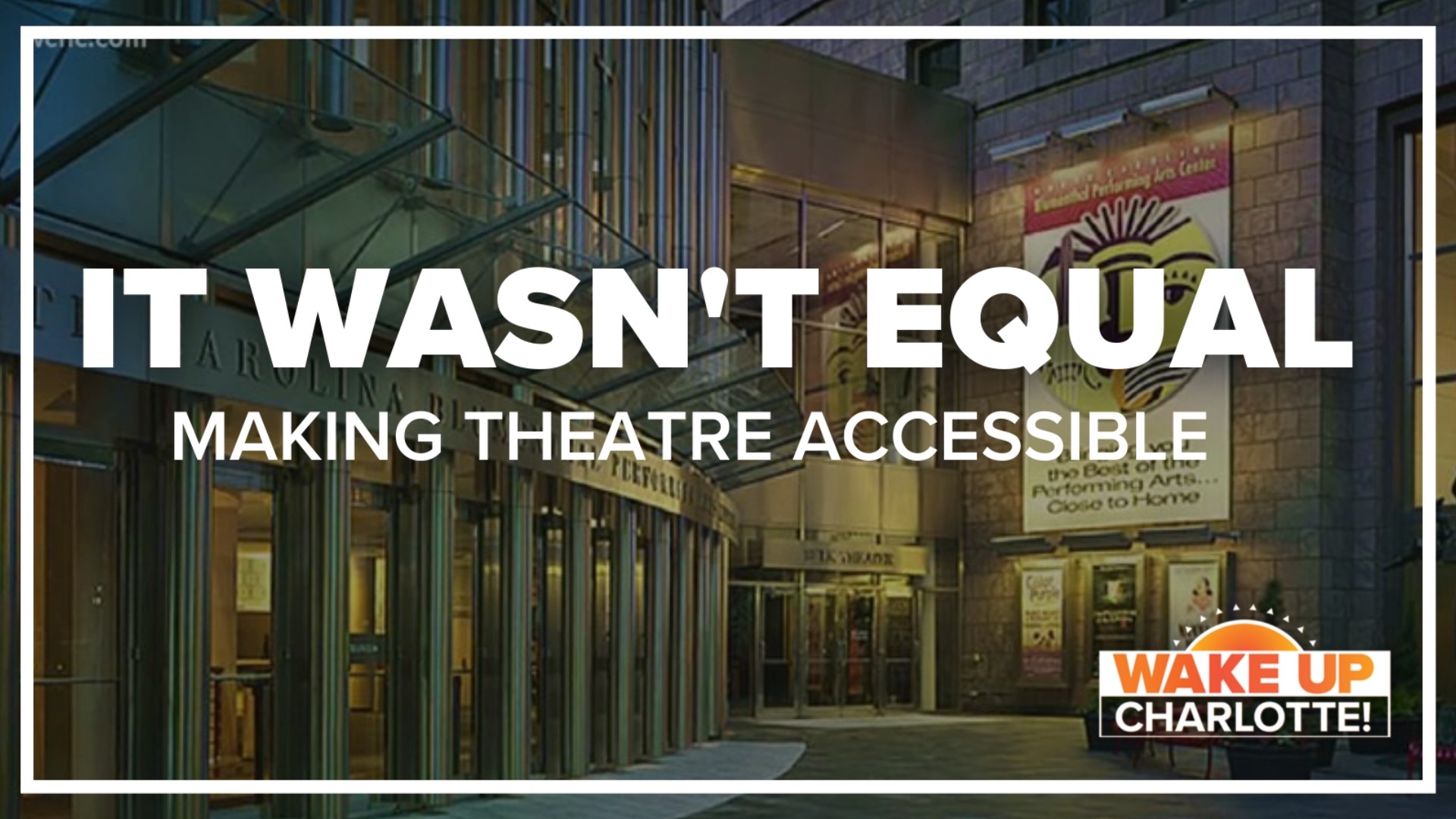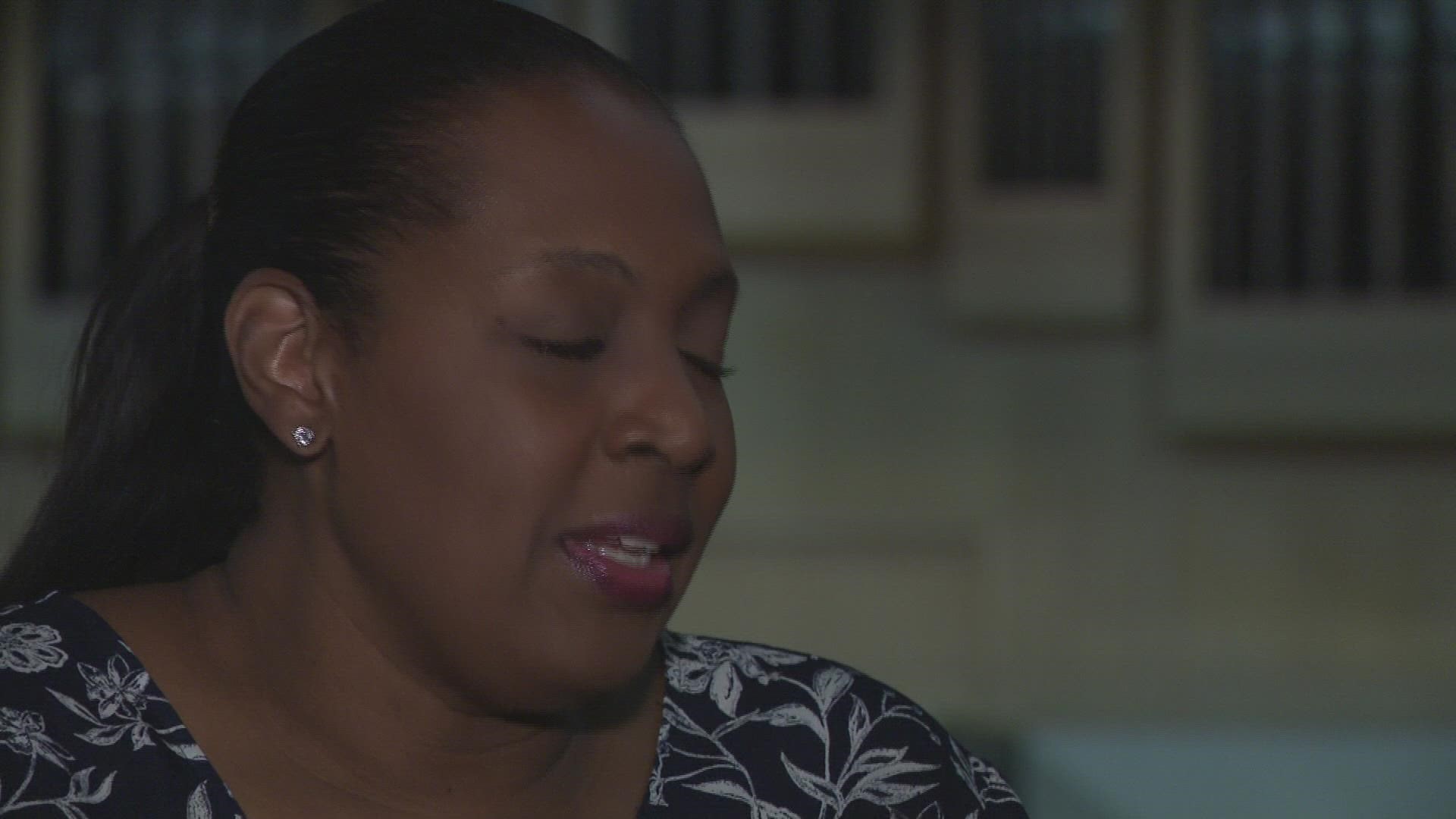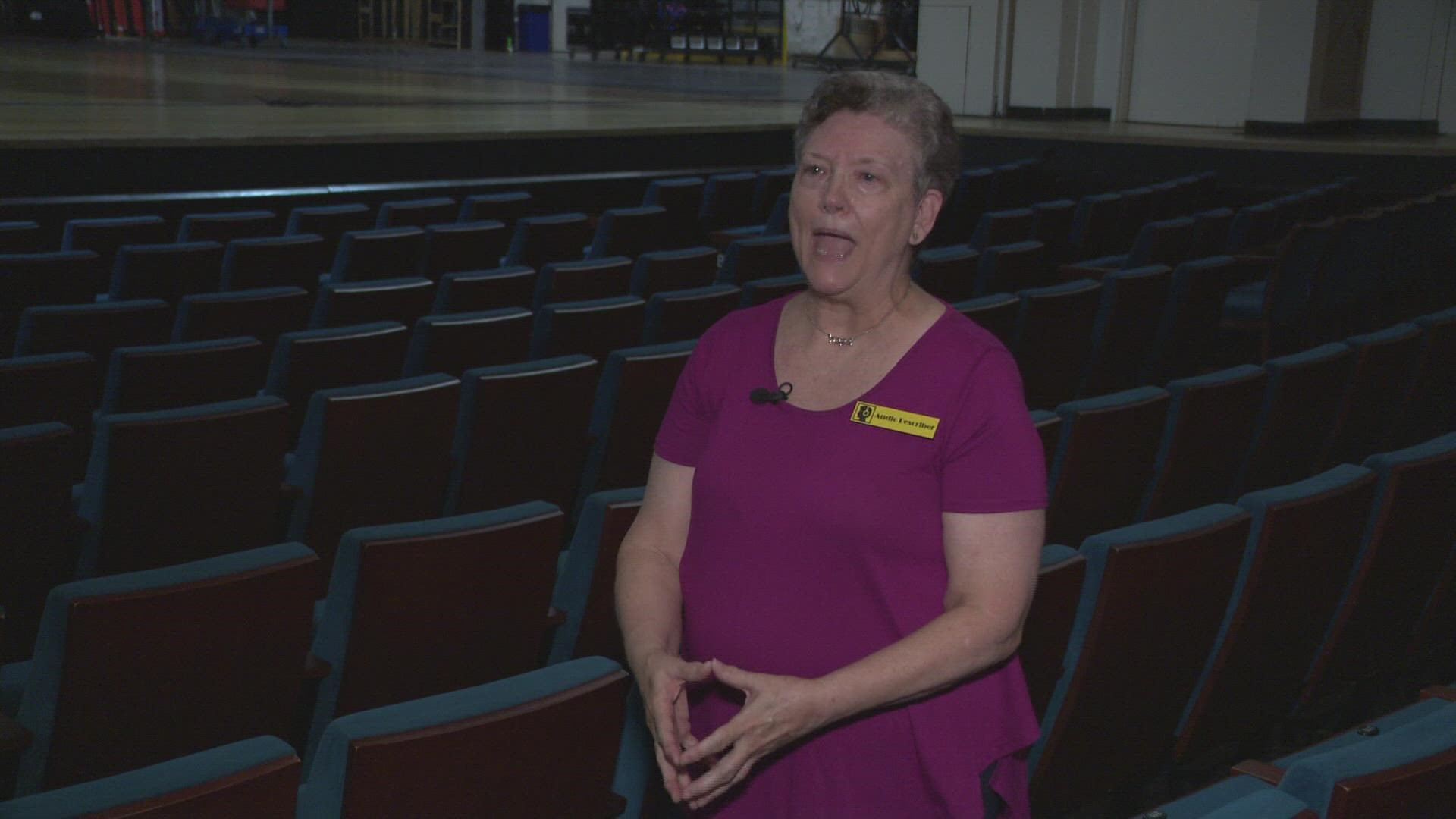CHARLOTTE, N.C. — Starting Tuesday, July 26, the Tony Award-winning play To Kill a Mockingbird will make its home at the Belk Theater in Uptown Charlotte.
The 24-person cast includes Anthony Natale, a deaf actor playing the non-deaf role of Link Deas. Natale has spent his life on the stage and screen, performing non-traditional roles across the country.
“It’s right to portray that we as deaf persons are able to play any role that doesn't traditionally have to be a deaf character,” Natale said. “This is an awesome way to allow the audience to then see the importance of showing the skills of deaf persons and that we can portray a caring character.
Natale uses American Sign Language (ASL) with his character and hopes that it can inspire deaf members in the audience to audition for hearing roles, adding that “in the 70s, and 80s, typically traditional roles stayed with traditional [actors], but now the skin color, the disability, that doesn't matter anymore. It's becoming more focused on the story itself.”
This month’s performances will not be the first time ASL will be used at the Blumenthal Performing Arts Center, as it has been offering services for those who are deaf or visually impaired for decades.
Since 1995, Blumenthal has interpreted certain performances for the hearing impaired. That includes the Sunday matinee for each of the Broadway Lights engagements.
Anita Baker has interpreted about a dozen shows at Blumenthal and said it all started for her at Central Piedmont Community College.
“I decided to take an American Sign Language class just to see if I could get an easy A to tell the truth, and it wasn't easy. As I got more engrossed in deaf culture, I noticed how it likened to my culture as a minority," she said.
That class caused her to take more classes and eventually became her major. After earning a degree in educational interpreting from the University of Northern Colorado, she returned to Charlotte and became the director of interpreting for Sorenson Communications.
Baker said it takes about seven years to master the language, so the nerves on stage are nonexistent.
“Because I've seen the show previously, I've been preparing for the show for weeks, and sometimes up to two months; I am ready,” Baker added.
While she’s confident, Baker said it still takes quite a bit of preparation.
Blumenthal said typically, two or three interpreters team up for each production. They see the show on Tuesday or Wednesday night and must be ready to sign the show on Sunday afternoon. The Center said facial expression and physical gestures are key components of ASL. For musicals, the interpreters use their entire bodies to convey the song to the audience.
For Blumenthal’s ASL-interpreted Sunday matinees, the interpreters typically sign from house right in the front orchestra section. Interpreters will try to meet deaf or hard of hearing audience members in the theater prior to the performance to make sure they can understand each other.
This fall will mark 20 years since Blumenthal began offering description services for patrons who are visually impaired.
“We had a person who had no vision and recognized in the Americans with Disabilities Act, she had the right to equal and effective communication,” Julia Sain, the first audio describer for the Center, said. “She couldn't see the show. It wasn't equal. So she talked to the director at that time. That person said, ‘how can we do this.’”
Sain was in the community at the time doing other work and teamed up with Blumenthal to create a plan. Her first show as an audio describer was ‘Lord of the Dance.’ Since then, Sain has described around 125 shows.
Audio describers work in teams of two to provide an on-going oral description of the show to the blind or visually impaired. Each listener wears a headset, so no other patrons are able to hear the description. The process of describing a show starts three weeks before the show comes to Charlotte. The audio describers will do research on their own before getting the script. That is when they will begin to prepare their four parts.
Describer Julia Sain walked us through how that process works.
Sain said it takes about a year to become an audio describer at Blumenthal. Once you make it through around 14 hours of classroom work, you must intern for a season. During that time, trainees listen to describers during a show while writing the preshow and intermission notes. Sain said by that point, a trainee has heard or been a part of about a dozen shows and will become a part of their team.
The Blumenthal Performing Arts Center is supported by Charlotte non-profit Disability Rights & Resources. If you have questions about audio description or would like to become an audio describer, you can learn more on their website.
Natale said that it is freeing for many with disabilities to be able to go to the theater. He said the free services are an opportunity for everyone, including the hearing audience because “it opens your eyes to seeing this kind of language and the art of signing being delivered.”
In addition to ASL interpretation and audio description, Blumenthal also provides closed captioning services for select Broadway shows at Belk and Knight Theaters. Using the GALAPRO app, patrons can see captions right on their phones. The app is used in 12 Broadway theaters, and Charlotte is one of the first cities outside of New York to offer the service for free.
Natale, who has performed across the country, said the captions can be a win-win for people who are hearing, deaf, or hard of hearing.
“They're missing things from the dialogue, the distractions, or whatever's going on around them,” Natale added. “With the captions, they can see it and then see it on stage.”
Wake Up Charlotte To Go is a daily news and weather podcast you can listen to so you can start your day with the team at Wake Up Charlotte.
SUBSCRIBE: Apple Podcasts || Spotify || Stitcher || TuneIn || Google Podcasts
All of WCNC Charlotte's podcasts are free and available for both streaming and download. You can listen now on Android, iPhone, Amazon, and other internet-connected devices. Join us from North Carolina, South Carolina, or on the go anywhere.



